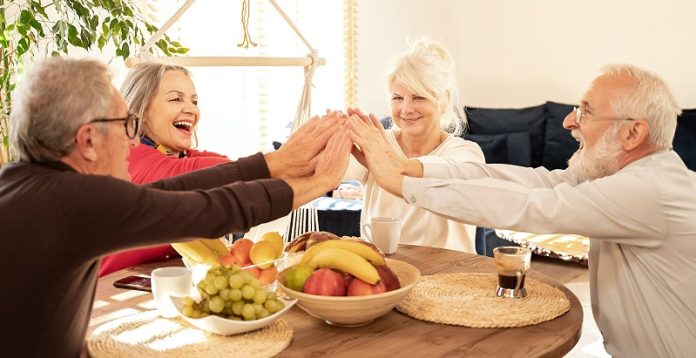
Every day, more than 10,000 Americans turn 65.
While some might see that as a reason to worry, experts say it’s never too late to start building healthy habits and changing the way we think about getting older.
Baby Boomers, the second-largest generation in the U.S., are changing the country’s age makeup.
By 2029, nearly 1 in 5 Americans will be 65 or older. That’s a big shift from the early 1900s when the average life expectancy was under 50 years old.
Growing older is something we all go through, but many older adults face ageism—negative ideas or stereotypes about aging.
Dr. Marcia Ory, a professor at Texas A&M University’s School of Public Health, says these stereotypes can actually harm people’s health, especially when they start to believe them.
“The real danger is when older adults think aging automatically means being sick and weak,” said Dr. Ory. “Research shows that believing these stereotypes can actually make people less healthy. Instead, we should see aging as a challenge we can work on and improve through public health efforts.”
As the U.S. population gets older, research is more important than ever in helping people live longer and healthier lives. Dr. Ory says we need to focus on whole-person care—treating people, not just their body parts. This means bringing together physical, mental, and social health care.
There are several key things that support healthy aging: being physically active, eating nutritious foods, and staying connected with others. However, even though we know these things help, it can be hard to put them into practice. For example, older adults may know they need to exercise more, but they might not feel motivated to do it alone or may not have a safe place to walk.
Dr. Ory says creating aging-friendly communities is essential. Most older people prefer to “age in place,” or stay in their own homes. Simple changes like installing grab bars in the bathroom or adding ramps can make a big difference.
New technology is also helping, including home sensors that can detect falls and alert emergency services. Ory and her team are exploring these tools to help manage conditions like dementia and diabetes.
Ultimately, healthy aging is a shared effort. Individuals can make better choices, families can offer support, and communities can work to remove obstacles.
“Aging doesn’t start at 65 or 85—it starts the day we’re born,” said Dr. Ory. “We need to think about healthy habits across our whole lives, not just later in life.”


